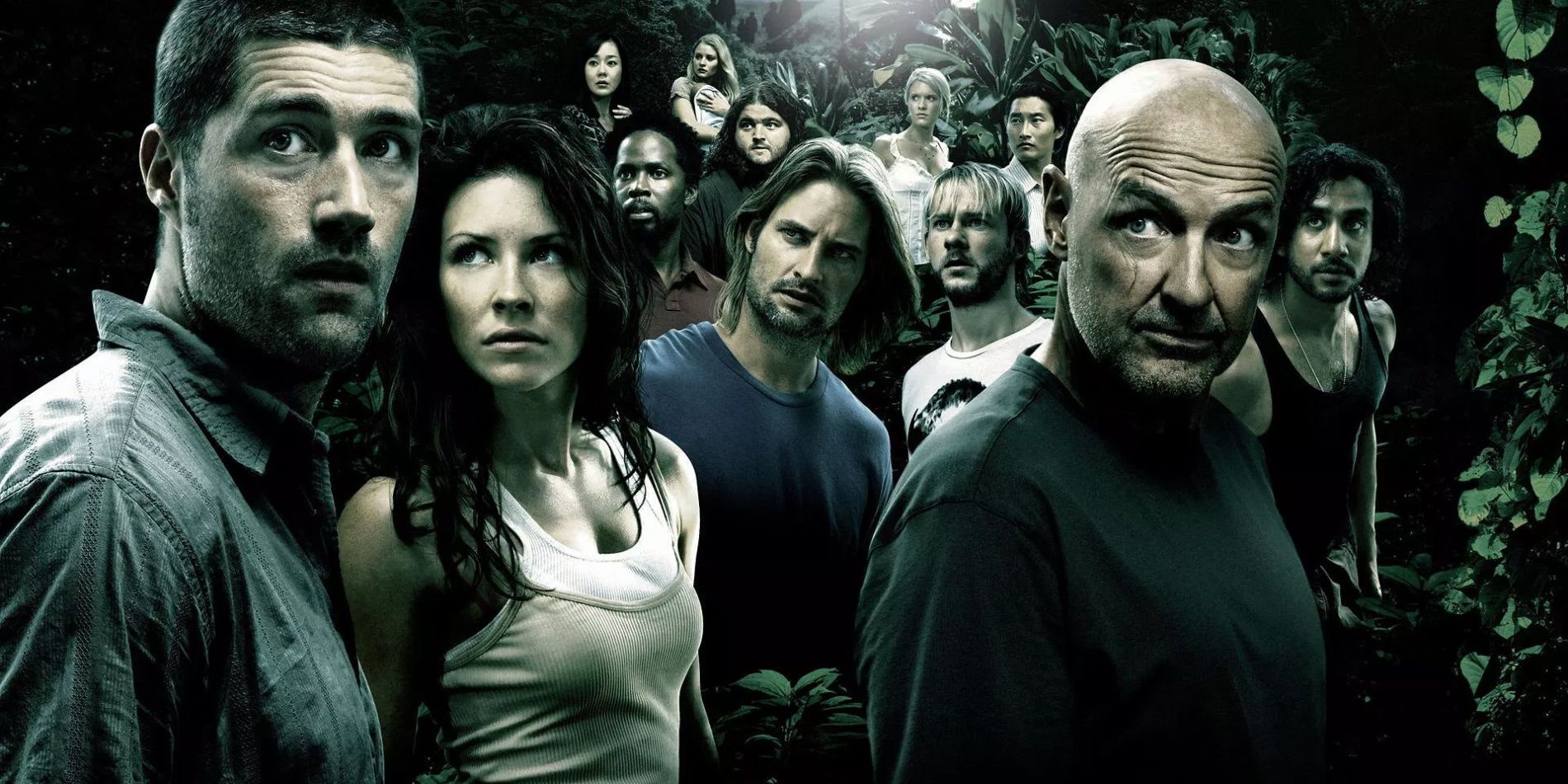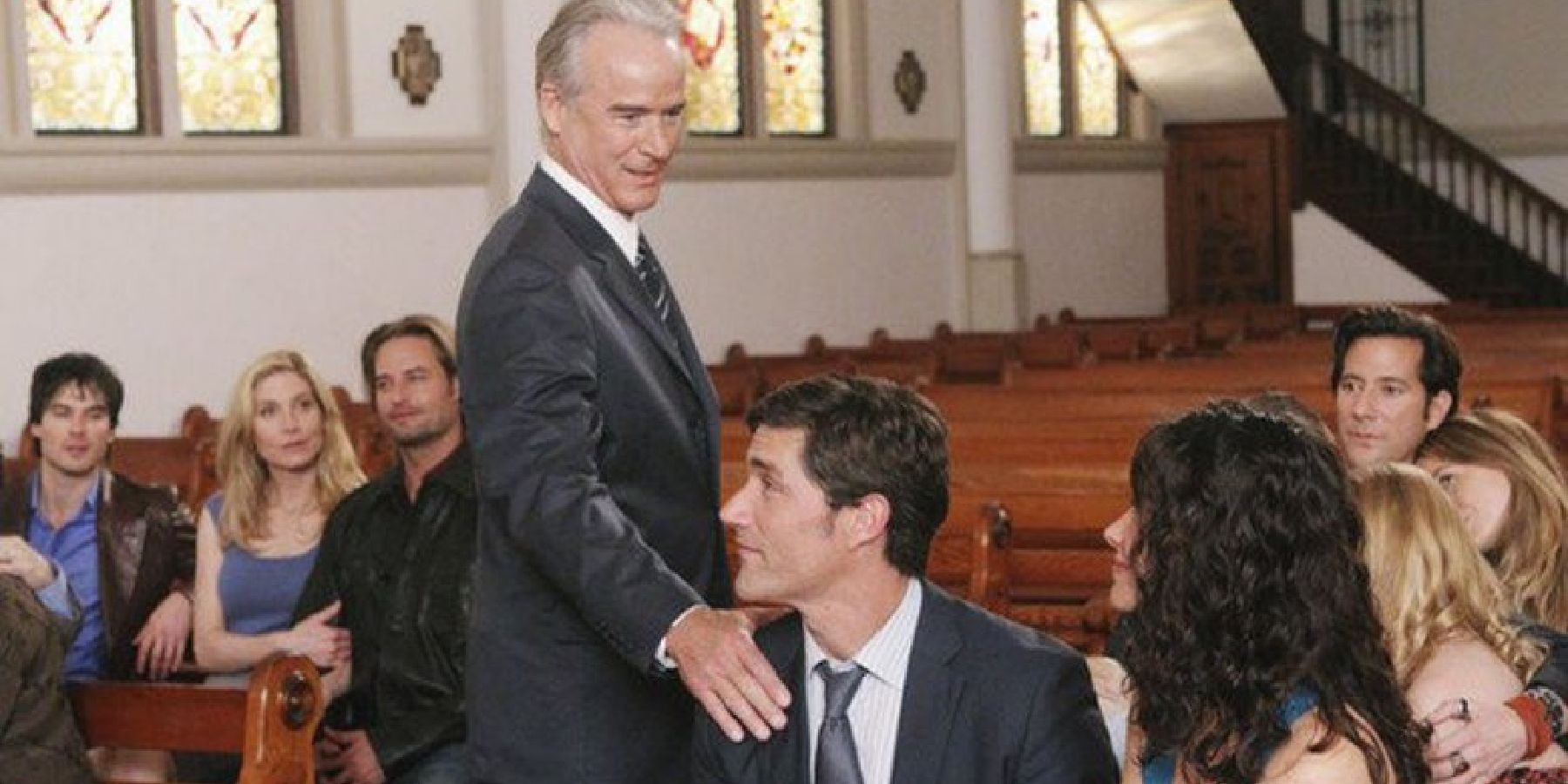Few television finales have sparked as much debate and discussion as the Lost TV ending. For years, the mere mention of the show's conclusion could ignite passionate arguments among fans, some praising its profound emotional depth, while others felt utterly betrayed by its perceived lack of concrete answers. This article contains spoilers for Lost, Season 6, Episode 17, "The End." If you're one of the many who still feel confused about the ending of Lost, or if you've been swayed by persistent misconceptions, you're in the right place.
The series finale of "Lost," appropriately titled "The End," aired on May 23, 2010, and left fans sharply divided over its ambiguity. It was a show that introduced so many mysteries over the course of six seasons that fans were understandably nervous about how it would all wrap up in the finale. Was it a brilliant spiritual allegory, or a frustrating cop-out? This comprehensive guide aims to clarify the true meaning behind the Lost ending, debunking common myths and exploring why it remains one of the most talked-about conclusions in television history.
Table of Contents
- The Phenomenon That Was Lost: A Brief Overview
- The Winding Road to "The End": Mysteries, Expectations, and Missteps
- "The End" Explained: A Recap of Lost's Controversial Finale
- The Lingering Myth: Were They Dead All Along in Lost?
- Character Destinies and Spiritual Resolution in the Lost Ending
- Why the Divide? Deconstructing the Fan Reactions to the Lost Ending
- Lost's Enduring Impact: A Legacy Beyond the Finale
- Conclusion
The Phenomenon That Was Lost: A Brief Overview
'Lost' premiered on September 22, 2004, and quickly captivated audiences worldwide. Created by J.J. Abrams, Damon Lindelof, and Jeffrey Lieber, the series followed a group of survivors of the fateful Oceanic Airlines Flight 815, which crash-lands on a mysterious island. From its very first episode, "Lost" established itself as a groundbreaking show, blending elements of science fiction, fantasy, adventure, and character drama into a unique, compelling narrative. Its pilot episode alone was lauded as one of television's best, drawing viewers into a world brimming with unexplained phenomena, enigmatic characters, and a deep, unfolding mythology.
The show's structure, characterized by its innovative use of flashbacks, flash-forwards, and later, "flash-sideways," allowed for a rich exploration of its diverse cast. Each character carried their own secrets, their own past traumas, and their own reasons for being on that fateful flight. The island itself was a character, a living, breathing entity with its own rules, protectors, and dangers. This intricate tapestry of character development and plot twists kept viewers hooked for six seasons, culminating in a highly anticipated, yet deeply divisive, Lost TV ending.
The Winding Road to "The End": Mysteries, Expectations, and Missteps
Over its six-season run, "Lost" became synonymous with mystery. Every answered question seemed to spawn three new ones, and fans eagerly speculated about everything from the Smoke Monster to the Dharma Initiative, the numbers, and the true nature of the island. This constant unveiling of new puzzles was a core part of the show's appeal, but it also built immense pressure on the eventual Lost TV ending to provide satisfying resolutions to these myriad enigmas. Fans were nervous about how it would all wrap up in the finale, given the sheer volume of threads the show had introduced.
However, the journey to the finale wasn't without its narrative challenges. As one critique put it, "the problem, in that respect, is that Lost kept stepping in piles of shit it on its way to the ending." This refers to certain plot points or character decisions that some viewers found jarring or less compelling. Examples often cited include the convoluted time-travel mechanics that left characters "stuck in the '70s," or seemingly random episodes featuring characters like Eloise Hawking and Katey Sagal, which, while perhaps serving a larger purpose, sometimes felt disconnected from the immediate narrative momentum for a segment of the audience. These moments, while not derailing the show entirely, did contribute to a sense of unease for some viewers about whether the series could truly stick the landing.
Setting the Stage: Oceanic Flight 815
The premise of "Lost" began with the harrowing crash of Oceanic Airlines Flight 815. This initial event served as the catalyst, bringing together a disparate group of individuals who would otherwise never have met. The immediate aftermath on the beach, the desperate struggle for survival, and the quick discovery that this was no ordinary island, set the tone for the entire series. The initial mystery of the hatch, the polar bear, and the whispers in the jungle immediately signaled that this was a show that would challenge viewers' perceptions of reality and conventional storytelling.
Navigating the Island's Labyrinthine Secrets
As the seasons progressed, the island's secrets deepened. From the Others and their mysterious leader Ben Linus, to the scientific experiments of the Dharma Initiative, and the island's unique properties that allowed for time travel and healing, the mythology grew increasingly complex. Characters like John Locke, driven by an unwavering faith in the island's power, and Jack Shephard, the reluctant man of science, embodied the core philosophical conflicts that underpinned the show. The introduction of Jacob and the Man in Black, ancient figures representing good and evil, elevated the stakes to a cosmic level, transforming the island into a battleground for the fate of humanity. This ever-expanding scope, while fascinating, also meant that the burden of expectation on the Lost TV ending grew exponentially.
"The End" Explained: A Recap of Lost's Controversial Finale
The series finale, "The End," aired on ABC in the United States on May 23, 2010. It was a two-and-a-half-hour television event that attempted to bring closure to the many plot threads and character arcs that the show had developed over six seasons. The finale primarily focused on two parallel narratives: the events on the island and the "flash-sideways" reality.
On the island, the survivors, led by Jack Shephard, faced their ultimate challenge: preventing the Man in Black (who had taken on Locke's form) from destroying the island and escaping. This involved a final confrontation at the Heart of the Island, where Jack ultimately sacrifices himself to restore the island's light and defeat the Man in Black. Hurley, with the guidance of Ben, takes over as the island's new protector, ensuring its stability. Jack, Kate, and Hurley go on one last, pivotal journey to save their world.
Simultaneously, the "flash-sideways" storyline, which had been a prominent feature of Season 6, depicted an alternate reality where Oceanic Flight 815 never crashed. In this reality, the characters lived seemingly ordinary lives, yet felt a persistent sense of déjà vu or an inexplicable connection to one another. Throughout the finale, these characters begin to "remember" their lives on the island, triggered by significant moments or interactions. The culmination of this storyline is a reunion in a church, where they are all brought together by Christian Shephard, Jack's father, who reveals the true nature of this "flash-sideways" reality.
The Lingering Myth: Were They Dead All Along in Lost?
Perhaps the most pervasive and frustrating misconception surrounding the Lost TV ending is the idea that "they were all dead from the beginning." This interpretation suggests that everyone on Oceanic Flight 815 died in the initial plane crash, and the entire series was a purgatorial dream. Thankfully, it didn’t take long for the show's creators and subsequent analysis to confirm that this wasn’t the case at all. For many, including myself, realizing this distinction made the Lost TV ending far more meaningful and profound. No, the characters of Lost weren't dead the entire show.
The show's creators, Damon Lindelof and Carlton Cuse, have repeatedly clarified that the events on the island were real. The plane crashed, the survivors lived, they faced real dangers, and they genuinely struggled for survival and meaning. Their deaths occurred at various points throughout the series and beyond, in their individual timelines. The "flash-sideways" reality was not purgatory from the moment the plane crashed; it was a separate, collective afterlife where they could reunite after their lives had ended, whenever that might have been for each of them.
The Flash-Sideways: A Realm of Collective Consciousness
The "flash-sideways" scenes were the primary source of this widespread misunderstanding. These scenes were introduced after Juliet (Elizabeth Mitchell), stuck in the 1970s, detonates a hydrogen bomb in the closing moments of Season Five in an attempt to prevent the hatch from ever being built and, by extension, the crash of Flight 815. This act creates the "flash-sideways" timeline, initially presented as an alternate reality where the plane never crashed. However, as the final season unfolded, it became clear that this was not an alternate reality in the traditional sense, but rather a transitional space.
This "flash-sideways" realm was a kind of collective consciousness, a shared purgatorial waiting room where the characters gathered after their individual deaths. It was a place where they could find each other, remember the most important relationships of their lives on the island, and ultimately, move on together. Christian Shephard explicitly states this in the church scene: "Everyone dies sometime, kiddo. Some of them before you, some of them a long time after you." He confirms that the time they spent together in this flash-sideways was a time they created to remember what was important, to remember the lives they lived, and to let go. It was their "reward in another life," a spiritual reunion before transcending to the next plane of existence.
Character Destinies and Spiritual Resolution in the Lost Ending
What the Lost TV ending truly meant for the show's main characters was a profound spiritual resolution. Even those who died on the island, or long after leaving it, got their reward in another life. The finale emphasized that the most important aspect of their journey wasn't necessarily the answers to every single mystery, but the relationships they forged and the personal growth they experienced on the island. The island itself was a crucible, forcing them to confront their pasts, heal their wounds, and become better versions of themselves.
Characters like Jack, who spent much of his life seeking scientific answers, ultimately found faith and sacrificed himself for the greater good. Kate found redemption and a sense of belonging. Sawyer learned to love and trust. Hurley, the kind-hearted lottery winner, embraced his destiny as the island's protector. The final moments in the church, with all the major characters reunited in a moment of shared understanding and peace, underscored this message. It wasn't about solving every puzzle, but about the human connection and the journey of self-discovery. The Lost TV ending was, at its heart, a story about finding your purpose and your people, and then moving on together.
Why the Divide? Deconstructing the Fan Reactions to the Lost Ending
Few TV finales have sparked as much debate as "Lost's." The series finale of "Lost" was met with mixed reactions from fans and critics alike. On one hand, many viewers found the emotional payoff incredibly powerful, appreciating the focus on character relationships and the spiritual themes. The reunion in the church, set to Michael Giacchino's iconic score, brought many to tears, feeling it was a fitting and moving farewell to characters they had grown to love. For these fans, the Lost TV ending truly did matter, delivering on the emotional core of the series.
On the other hand, a significant portion of the audience felt let down. This division stemmed largely from the show's deliberate choice to prioritize character and spiritual resolution over definitive answers to every single mythological question. Viewers who had spent years meticulously dissecting every clue, every number, and every symbol, hoping for a grand, intricate explanation for all the island's mysteries, felt unfulfilled. In its journey from one of television’s best pilots to what some perceived as one of the medium’s worst finales, ABC’s hit castaway drama struggled to satisfy all expectations.
The Weight of Unanswered Questions
The ambiguity of the finale was a double-edged sword. While it allowed for a more open-ended, philosophical interpretation, it also left many plot threads tantalizingly unresolved. Questions about the true nature of the Smoke Monster's origins beyond the Man in Black, the purpose of the numbers, the specifics of the Dharma Initiative's experiments, and the fate of minor characters were largely left to the imagination. The finale, titled "The End," attempted to bring closure to the many plot threads and character arcs that the show had developed over six seasons, but it couldn't possibly address every single one without becoming unwieldy.
For some, this felt like a betrayal of the show's central premise as a mystery box. They believed that a show built so heavily on intricate puzzles had an obligation to solve them. This expectation, coupled with the misinterpretation of the "flash-sideways" as an "all dead" scenario, fueled much of the backlash. It became clear that "Lost," which ended over a decade ago, has the most misunderstood finale of all time, largely due to this clash between audience expectations for definitive answers and the creators' vision for a more thematic, character-driven conclusion.
Lost's Enduring Impact: A Legacy Beyond the Finale
Regardless of how one feels about its conclusion, "Lost" was a TV series, for better or worse, that left a major impact on the medium. It redefined serialized storytelling, popularized complex narrative structures, and proved that audiences were willing to invest deeply in long-form mysteries. Its influence can be seen in countless shows that followed, from their intricate mythologies to their character-driven narratives.
Even years later, the Lost TV ending continues to be a topic of discussion, a testament to the show's lasting cultural footprint. The fact that "Does Lost have you feeling lost, even 20 years later?" is still a relevant question speaks volumes about its enduring power. It challenged viewers, provoked thought, and fostered a passionate community of fans who debated its every twist and turn. While its finale may not have satisfied everyone, its overall contribution to television as an art form is undeniable. It pushed boundaries, took risks, and ultimately, delivered a story that, for many, resonated deeply on an emotional and spiritual level, even if the answers to every single mystery remained elusive.
Conclusion
The Lost TV ending remains one of television's most controversial and misunderstood conclusions. Our "Lost" finale explanation has attempted to address the questions that left fans confused and/or upset by how "Lost" ended its run. By understanding that the "flash-sideways" was a collective afterlife, a place for the characters to reunite and move on together after their real lives had ended, the pervasive myth that "they were dead all along" is debunked. The island was real, their struggles were real, and their connections were profoundly real.
Ultimately, the finale was a deeply emotional and spiritual resolution to a story about people finding each other, healing, and moving forward. While it may not have tied up every single loose end for the mystery-obsessed, it delivered a powerful message about life, death, and the importance of human connection. If you're still feeling lost about the Lost TV ending, we hope this article has provided clarity and a new perspective. What are your thoughts on the finale now? Share your insights in the comments below, and don't forget to explore our other articles on iconic TV series!


